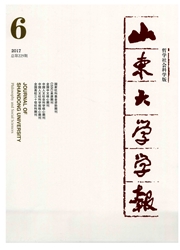

 中文摘要:
中文摘要:
运用中国家庭追踪调查(CFPS2012)数据实证检验了人口老龄化带来的消费结构变动情况。基准分析发现,人口老龄化会带来居民家庭消费结构的改善,但这一改善作用主要是通过提升居民家庭的医疗保健消费支出占比来实现的,人口老龄化对居民家庭交通通讯消费支出以及文教娱乐消费支出占比的影响均为负。进一步分析发现,相比于城镇地区而言,人口老龄化的消费结构升级效应在农村地区表现得更为强烈,这与我国大量的青壮年人口从农村迁移到城市,使得农村的人口老化程度相比于城镇地区更为严峻有关;对于健康状况更好的家庭而言,人口老龄化的消费结构升级效应反而更弱,健康状况越佳,人口老化对医疗保健消费支出更低,相应的对消费结构升级的作用效果越小,这意味着人口老龄化的消费结构升级效应还是浅层次的。
 英文摘要:
英文摘要:
This paper investigates the relationship between demographic transition and the upgrading of the consumption structure and summarizes the reasons and theoretical mechanism of population aging causing the transformation of the consumption structure. Using the micro data from China Family Panel Survey (CFPS2012) as samples for empirical testing, the results show that population aging can lead to a higher percentage of developmental type consumption, especially for household health care spending. There is negative effect on traffic communication consumption ratio and cultural and educational entertainment consumption ratio. Further analysis shows that the effects of population aging on the upgrading of the consumption structure is more significant in rural areas than that of urban areas. This is mainly because thousands of young people migrate from rural areas to urban cities which in turn leads to a more serious population aging in rural China. The healthier the family is, the weaker effect of population aging on the upgrading of the consumption structure. This is because people may pay less on health care for the healthier family, which means that the effects of population aging on the upgrading of the consumption structure is only of a shallow level.
 同期刊论文项目
同期刊论文项目
 同项目期刊论文
同项目期刊论文
 期刊信息
期刊信息
